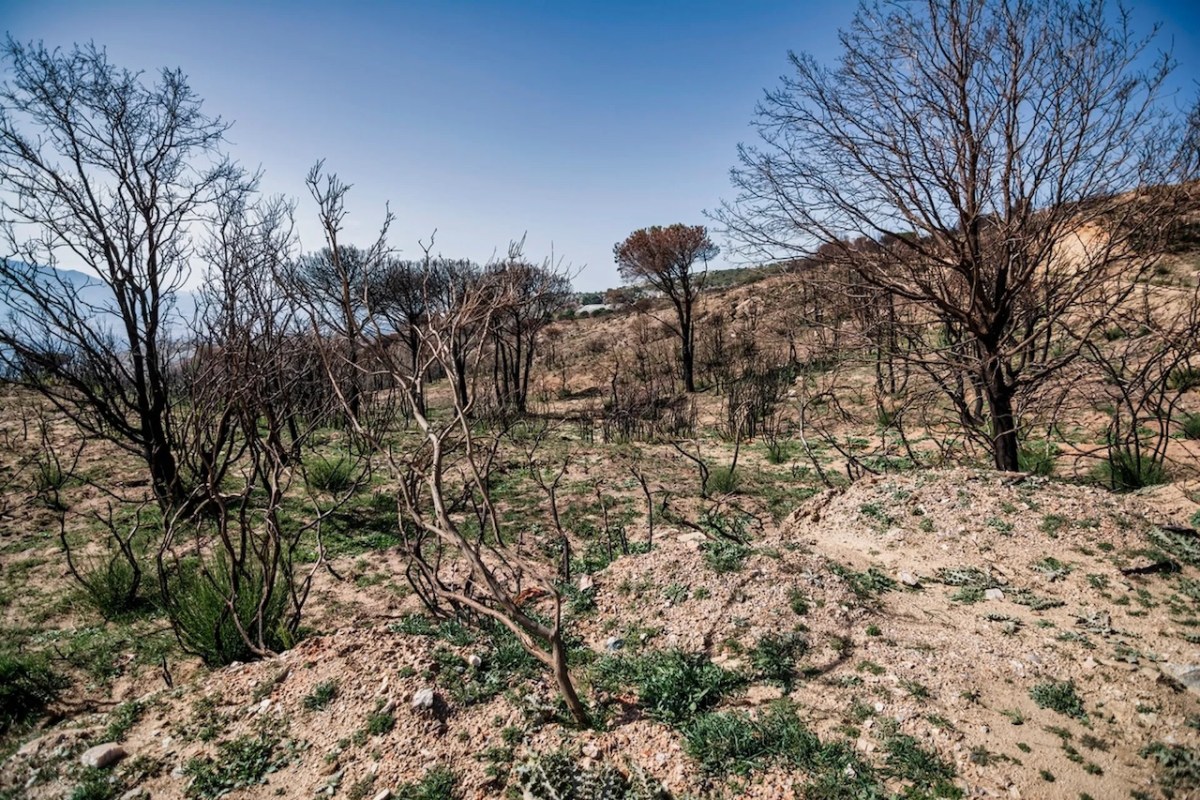Scientists in Greece are bracing themselves after the country experienced another warm winter, with the high temperatures potentially a foreboding sign for the summer.
What happened?
Reuters reported on March 4 that Greece had its hottest winter on record this year, according to data from the European Union's Copernicus Climate Change Service.
The National Observatory of Athens, whose scientists analyzed the data, found that the average high temperature was 1.8 degrees Celsius (3.24 degrees Fahrenheit) warmer than the peak average winter temperatures from 1960 to 2024.
"Temperatures were above normal on most days, with only small intervals of cold weather," Konstantinos Lagouvardos, research director at the National Observatory, told Reuters. "This is a new reality, and we must take it seriously. Climate change is undoubtedly here."
According to the outlet, six of Greece's hottest winters have taken place in the last 10 years.
Why is this concerning?
Agriculture is an important part of Greece's economy, with the Ministry of Foreign Affairs noting that 4% of its gross domestic product (GDP) comes from this sector — nearly double the European average.
However, warm winters have a disruptive impact on this industry, including Greece's famed olive oil, which has become more expensive — and thus less accessible to everyone — since growers started struggling to produce their typical amounts amid a changing climate.
"The lack of a proper winter will create problems, for sure," Michalis Antonopoulos, the head of the farmers' cooperative of Kalamata, told Reuters, as colder winters prevent the olives from flowering too soon.
This could be a worrying sign for the summer as well. Scientists told the outlet that wildfires could once again ravage the country, with low rainfall and humidity being the other factors taken into consideration along with the warm winter.
Last July, as detailed by Copernicus, thousands of people were forced to flee fires, which released record levels of harmful pollution in the country.
"Unfortunately, it is not all that surprising, given the extreme conditions in the region. The observed intensity and estimated emissions show how unusual the scale of the fires have been," CAMS Senior Scientist Mark Parrington said in a statement.
What can be done about these conditions?
Our planet has been heating up at an accelerated rate because of human activities. Dangerous weather events have been directly linked to this trend, with devastating and deadly wildfires becoming more frequent in many places around the globe.
Ancient techniques, building materials, and designs are some of the solutions that have been implemented to help keep people safe during fires, but phasing out dirty fuels, like coal, oil, and gas, is the best thing we can do to help limit the rise of our planet's temperatures.
Many countries, including Greece, are doing their part by investing in a clean-energy grid, and individuals can reduce pollution in their daily lives as well.
While solar panels have a higher upfront cost, they can save people thousands of dollars in electric bills over time while eliminating an estimated 8,500 pounds of pollution every year. If that's not in your current budget, unplugging energy vampires when they aren't in use still provides money-saving, planet-friendly benefits.
Join our free newsletter for cool news and cool tips that make it easy to help yourself while helping the planet.









